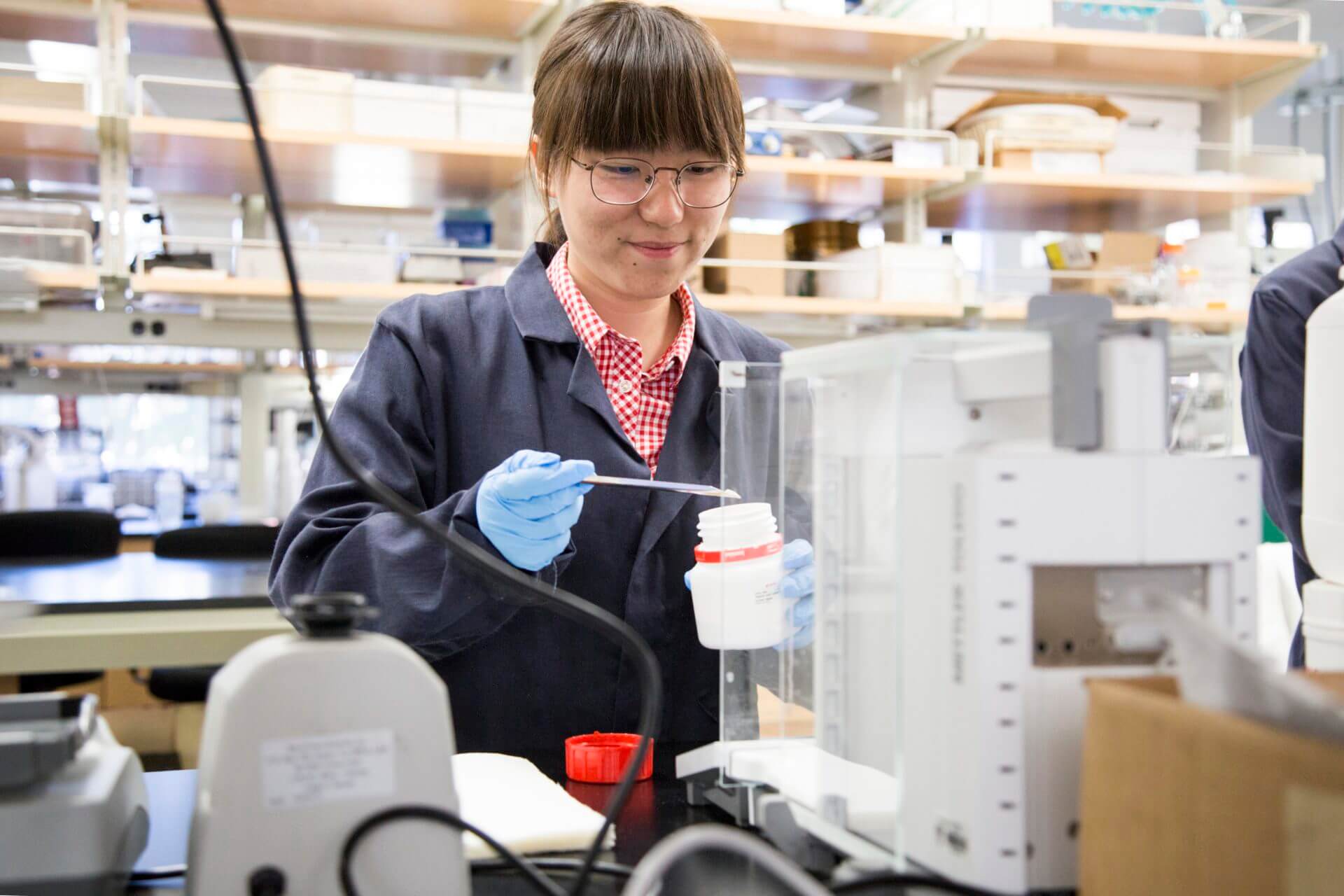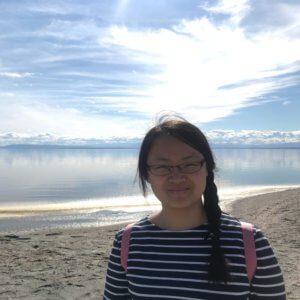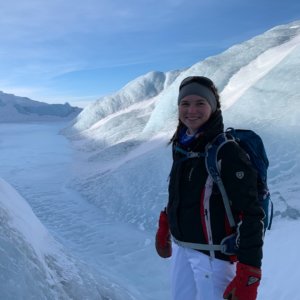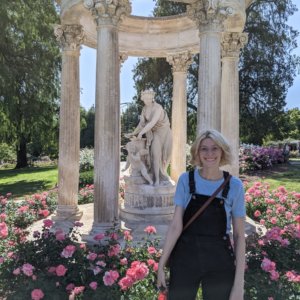Doctoral Program in Environmental Engineering








Yun Li
Phd in Environmental Engineering
What’s the best piece of advice you’ve ever been given?
Always be confident in yourself. PhD study is definitely not an easy route, and there are times when you can have doubt in yourself. For me, sometimes I feel depressed when thinking about questions like: Do I have the ability and knowledge to solve the problem? Am I taking the right method to solve this issue? Can I express myself clearly in scientific writing? … Thanks to my advisor who is always encouraging, and tells me to look at and be proud of what I’ve already done. His advice makes me feel I can deal with any obstacle in my research.
What do you consider your greatest accomplishment?
The project that I’ve worked on for the past one year and a half was part of a systematic project called the City of Los Angeles 100% Renewable Energy Study (LA100) which was initiated by the Los Angeles Department of Water and Power (LADWP) and led by the National Renewable Energy Laboratory (NREL). The results from LA100 were announced by the Mayor’s Office in March (available at: https://www.lamayor.org/mayor-garcetti-announces-findings-historic-100-percent-renewable-energy-study) as a guidance for the city to achieve 100% renewable energy goal in the next ~25 years.
What's your favorite impulse purchase from the past 12 months?
I bought a switch game called Fire Emblem Three Houses last summer (not an ad!). I really enjoyed the stories and connections among different characters in the game, especially during the pandemic when people are far apart from each other.
Please describe a little about your research and what excites you about it
My research uses atmospheric models to study the interaction among humans, land cover change and atmosphere in Los Angeles. More specifically, my first project focuses on how land cover changes (e.g., replacing natural shrubs with buildings and roads) via historical urbanization has impacted meteorology (e.g., air temperature) and air quality (e.g., ozone and PM2.5 concentrations) in Los Angeles Basin. My second project looks at the influence of adopting renewable energy on air quality in Los Angeles in a future year. I enjoyed working on my research projects because they applied scientific knowledge I learnt to solving actual environmental problems that we’re facing today. The research carried out in my group can be informative for policy-making for achieving sustainable development of a city.
If you could choose any other profession outside of engineering or computer science, what would it be?
I would really want to become a sports journalist because I have been inspired a lot by the stories of those talented and hard-working athletes.
What are some factors that helped you decide to pursue your PhD at USC?
I think the most important factor is my research advisor. I enjoyed interviewing with him while I was applying for PhD, and got to know more about him while chatting with his PhD student at that time. He is an inspiring advisor during work, and an easy-going friend in life. I also find the university itself another very important factor. The flexibility in course selection and abundance in various study and living resources at USC are especially attractive to me. Last but not least, the city where the university is located matters a lot as well, and Los Angeles is a good place to live in.
If you were to recommend to an incoming student 3 places to go in California/Los Angeles, what would they be?
I would recommend Griffith Observatory for a birdview of Los Angeles, Universal Studio for relaxation and entertainment, and Joshua Tree National Park for a unique natural scene in SoCal.
What is a memory you'll cherish about your time at USC?
I enjoy hanging out with my group! I remember one time we went bouldering and ate at a pub in Koreatown. It was a lot of fun.
What's one thing about you that might surprise me?
I’m usually a very quiet person, but I like things that are thrilling like watching sports games and riding roller coasters.
What are your plans after graduation?
Currently, my plan is to look for a postdoc position in my research field, and pursue a career path in academia. But I’m also open to an industry career path. Nevertheless, I want to use the knowledge I’ve gained during my PhD study to help address air quality and climate change issues.
Hometown (city, country):
Beijing, China.
Faculty Advisor:
George Ban-Weiss
Raven Althouse
PhD Environmental Engineering
What’s the best piece of advice you’ve ever been given?
The more you learn, the more you’ll realize there’s so much you don’t know: It’s okay to not know things. What’s important is being willing to learn.
What do you consider your greatest accomplishment?
Prioritizing my mental health, particularly when transitioning to a new program and city during lockdown.
What's your favorite impulse purchase from the past 12 months?
A new pair of running shoes!
Please describe a little about your research and what excites you about it.
My research focuses on microbial processes in engineered water systems. Currently I’m investigating the use of novel archaea in membrane biofilm reactors (MBfRs) to remove dissolved greenhouse gases. Understanding that this research will be a piece to the puzzle of combating global climate change is extremely exciting to me, particularly considering this research has the possibility of one day helping to lower, and possibly even eliminate, the greenhouse gas emissions that water treatment systems currently produce.
If you could choose any other profession outside of engineering or computer science, what would it be?
If I had to choose a profession outside of engineering, I would explore interior design (or be a farm hand on a dude ranch).
What are some factors that helped you decide to pursue your PhD at USC?
When deciding on attending USC, there were a few things that set Viterbi apart from other programs I had applied to. First, I loved how much freedom I was given as a PhD in choosing the courses for my degree. While there are of course required core courses, having the power to choose electives that I think are relatable and valuable to my research, regardless of the department by which they’re taught, is extremely unique and I love the interdisciplinary approach. Second, I wanted to go to a school that offered the opportunity to not only be a research assistant, but a teaching assistant as well. Wanting to go into academia in the future, this is an extremely valuable way for me to learn what goes into teaching a course, and to help me strengthen my skills as an educator. Lastly, by observing the atmosphere created by the students, faculty, staff, and alumni, I knew USC would offer not only a rigorous education, but a supportive environment as well as a valuable network both during and after my time at Viterbi.
If you were to recommend to an incoming student 3 places to go in California/Los Angeles, what would they be?
Although LA has so much to offer and explore, sometimes it’s nice to get out of the city rush for a bit and have a change of scenery. For that reason, I recommend incoming students check out Descanso Gardens, Chino Hills State Park, and Normandy Village.
What is a memory you'll cherish about your time at USC?
I love getting together with fellow PhDs outside of the lab—whether it’s going out for a meal after a long day in the lab, watching movies at someone’s apartment, or exploring a new part of the city together, those memories mean so much!
What's one thing about you that might surprise me?
I’ve been to the Greenland Ice Sheet!
What are your plans after graduation?
’m hoping to go down the path of applying to be a post-doc for a few years before securing a faculty position at a university.
Hometown (city, country):
Rebersburg, PA, USA.
Personal Website (if any):
USC Smith Lab website: https://www.smithresearchusc.com/
Faculty Advisor:
Dr. Adam Smith
Hannah Schlaerth
PhD in Environmental Engineering
What’s the best piece of advice you’ve ever been given?
When I was a junior in high school, I had an English teacher who told our class that learning to critically read and write would help us in any career path we wanted to pursue. Every acceptance letter I’ve ever received is in part thanks to this advice and the writing skills I learned in her class.
What do you consider your greatest accomplishment?
My greatest accomplishment so far has been getting my master’s degree in environmental engineering. After graduating with a bachelor’s degree in geology, I moved across the country and completely changed fields— I went from looking at rocks all day in the suburbs of Ohio to thinking about air pollution in Los Angeles. Everything was new to me, and not in a fun way but a way that was overwhelming and exhausting. Getting my master’s degree feels emblematic of my perseverance through such a difficult time and I never would have believed that I could grow so much as both a scientist and an individual.
What's your favorite impulse purchase from the past 12 months?
I recently splurged on a pair of Big Bud Press work pants and now they’re all I wear!
Please describe a little about your research and what excites you about it
My PhD research so far can be summed up as a study of weird sources of emissions: tugboats and trees. In my first study, I measured emissions from tugboats of a cancer-causing aerosol called black carbon. I found that tugboats spend most of their operational time near shore and emit more black carbon per fuel consumed than other similarly sized vessels. This is important information because these vessels are emitting close to where people live. These findings culminated in a paper I just recently published in the journal Atmospheric Environment. My current project investigates the air quality impacts of tree planting in urban areas using a climate-chemistry model. Many cities propose tree planting goals as a form of heat mitigation because trees provide shade and evaporative cooling. However, it’s often overlooked that trees are emission sources of volatile organic compounds. These emissions lead to the formation of air pollutants like particulate matter and ozone under the right atmospheric conditions. I’m hoping that the results of my study will help city planners maximize the considerable cooling benefits of tree planting while avoiding serious drawbacks to air quality. My research excites me because it truly feels like I’m helping make the world a better place. These projects are extremely policy relevant and improving air quality literally saves lives.
If you could choose any other profession outside of engineering or computer science, what would it be?
If I didn’t end up in a STEM field, I would have pursued illustration. I like that science changes the way I see the world around me—it’s a really unique feeling to look at something completely ordinary like a cloud in the sky and suddenly notice that it’s the sum of all these physical processes at play. I feel that some form of art, like drawing or painting, would probably reproduce this same feeling, but maybe the things I’d be noticing would be form, color and light.
What are some factors that helped you decide to pursue your PhD at USC?
I decided to pursue my PhD at USC based on funding and my faculty advisor. I appreciated the security and transparency of my offer letter, which gave me an idea of where my funding would be coming from throughout my PhD. My advisor also seemed like a great fit for me- laid back, but incredibly research productive in cutting-edge science. Prior to accepting my offer, I talked with my future lab mates and I could tell he would be someone who I would enjoy working with and whose expectations of me would be reasonable.
If you were to recommend to an incoming student 3 places to go in California/Los Angeles, what would they be?
What is a memory you'll cherish about your time at USC?
A group of PhD students in our department decided they wanted to celebrate Pi Day one year, so on March 14 we all went on a 3.14-mile walk to a pie shop downtown. It was just a silly excuse to socialize together, but I had so much fun and the pie was great!
What's one thing about you that might surprise me?
I’m a bird person! I own two parakeets, BMO and Picasso, and their favorite thing to do is squawk during important Zoom meetings.
What are your plans after graduation?
When I graduate, I want to pursue a tenure-track position in an earth sciences department. I’m not quite sure what this will look like yet, but I love teaching and doing policy-relevant research. I’m confident that being a professor is a job I could excel at while making a positive impact in my community.
Hometown (city, country):
Pickerington, Ohio
United States
Faculty Advisor:
George Ban-Weiss